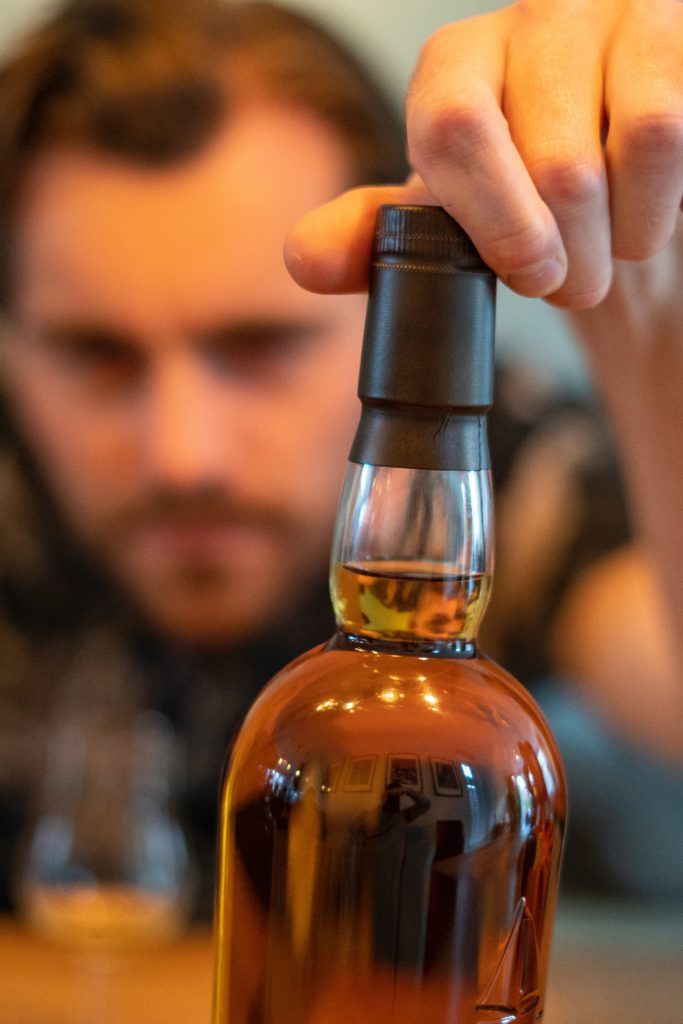What Is an Alcohol Allergy?
An alcohol allergy is when your body reacts to alcohol as if it’s a harmful intruder and makes antibodies that try to fight it off. This causes an allergic reaction. Alcohol allergies are rare, but if you do have one, it doesn’t take much to trigger a reaction. Two teaspoons of wine or a mouthful of beer may be enough.
Alcohol Allergy vs. Intolerance
Most people who react to alcohol aren’t allergic to it. They have an intolerance. They don’t have one of the active enzymes needed to process alcohol — alcohol dehydrogenase (ADH) or aldehyde dehydrogenase (ALDH). This is often called alcohol intolerance.
Alcohol allergy symptoms
The symptoms of alcohol allergy are usually more serious. Signs of an alcohol allergy include:

- Anaphylaxis, which is a severe reaction that can include a rapid, weak pulse, nausea, and vomiting. If you have this, swelling, or trouble breathing, call 911.
- Rashes
- Trouble breathing
- Stomach cramps
- Collapse
Alcohol intolerance symptoms
If you have alcohol intolerance, you may get:
- A red, flushed face
- Diarrhea
- A hot feeling
- Headaches
- Heartburn
- Hives
- A rash
- A fast heartbeat or palpitations
- Low blood pressure
- A stuffy nose
- Stomach pain, which may include nausea or vomiting
- Trouble breathing
- If you have asthma, your symptoms get worse
In a few cases, alcohol intolerance can be a sign of a more serious problem. If you think you have it, talk with your doctor and find out what’s causing it.
What is the difference between alcohol allergy and intolerance?
If you have an alcohol allergy, your immune system over-reacts to alcohol. If you have alcohol intolerance, your digestive system doesn’t process alcohol properly. You might also react to certain alcoholic beverages if you have histamine or sulfites intolerance. In very rare cases, reactions to alcohol may be a sign of Hodgkin’s lymphoma.
Alcohol intolerance
Aldehyde dehydrogenase (ALDH2) is an enzyme that your body uses to digest alcohol. It turns alcohol into acetic acid, a main component of vinegar, in your liver. Some people have a variant in the gene that codes for ALDH2. This variant is more common in people of Asian descent.
If you have this variant, it causes your body to produce less active ALDH2. This prevents your body from digesting alcohol properly. This condition is called an ALDH2 deficiency. It’s a common cause of alcohol intolerance.
If you have an ALDH2 deficiency, your face may get red and warm when you drink alcohol. You may also experience other symptoms, such as:

- Headache
- Nausea
- Vomiting
- Rapid heartbeat
According to a 2010 study published in BMC Evolutionary Biology, the gene change responsible for ALDH2 deficiency is linked to the domestication of rice in southern China several centuries ago.
Histamine intolerance
Histamine is a chemical that occurs naturally in your body. It’s also found in many foods and beverages, especially fermented products. For example, aged cheese, smoked meats, sauerkraut, wine, and beer tend to be high in histamines.
Normally your body produces an enzyme called diamine oxidase (DAO) to break histamine down. If your body doesn’t produce enough active DAO, you may react to histamine in foods and beverages.
The symptoms of histamine intolerance are similar to an allergic reaction. For example, potential symptoms include red and itchy skin, nasal congestion, shortness of breath, abdominal pain, and diarrhea. Red wine tends to have higher levels of histamine than white wine or beer.
Sulfites intolerance
Some people have an intolerance or sensitivity to sulfites. These compounds are often added to beer and wine to limit the growth of yeast and act as a preservative. Common sulfites include potassium bisulfite or potassium metabisulfite. Sulfur dioxide is another closely related chemical that can trigger reactions in some people.
Some people experience allergy-like reactions to sulfites. Some types of sulfites might also trigger an asthmatic attack if you have asthma. White wine tends to contain higher levels of sulfites than red wine and beer.
Hodgkin’s lymphoma
Some people with Hodgkin’s lymphoma experience pain after drinking alcohol. Hodgkin’s lymphoma is a type of cancer that can affect your lymphatic system. Many people with Hodgkin’s lymphoma develop enlarged lymph nodes. Typically, these lymph nodes aren’t painful. But in rare cases, they become painful after alcohol consumption. The exact cause of this response is unknown.
Common Food Allergens in Alcoholic Beverages
Alcoholic beverages are made from complex mixtures of grains, chemicals, and preservatives that your body needs to break down.
Alcohol allergy: If your body can’t do this well enough, you will react.
Common allergens in alcoholic beverages include:
- Barley
- Egg protein (usually in wine)
- Gluten
- Grapes
- Histamines
- Hops
- Rye
- Seafood proteins
- Sodium metabisulfite
- Sulfites
- Wheat
- Yeast
Red wine is more likely to cause a reaction than any other alcoholic drink. Beer and whiskey also can cause reactions because both are made from four common allergens: yeast, hops, barley, and wheat.
Alcohol Allergy Risk Factors
You may be more likely to have an intolerance to alcohol allergy symptoms if you:
- Are allergic to grains or have other food allergies
- Have Hodgkin’s lymphoma
- Are of Asian descent
- Have asthma or hay fever
If you’re taking medication, check with your doctor to see if it’s OK to drink alcohol while you take it.
How is alcohol allergy diagnosed?
If you develop symptoms of alcohol allergy after drinking alcohol, make an appointment with your doctor. Depending on your symptoms, they might refer you to an allergist for testing and treatment. An allergist is a special type of doctor that focuses on allergic conditions.
Your doctor will probably start by asking you questions about your symptoms and medical history, such as:
- What alcoholic beverages trigger your symptoms?
- What symptoms do you experience?
- When did you start getting symptoms?
- Do you have relatives with allergies?
- Do you have any other medical conditions?
If they suspect you have a true allergy to alcohol or another ingredient in alcoholic beverages, they will likely conduct allergy testing. The most common type of allergy testing is the skin prick test. During a skin prick test, your doctor will use a lancet to prick or scratch your skin. They will apply a drop of allergen extract to the pricked or scratched area. Your skin’s reaction can help them learn if you have an allergy.
In some cases, they might use an oral challenge test to diagnose an allergy or intolerance. In this procedure, they will ask you to consume a sample of your suspected trigger. They will observe any symptoms you develop. They may also conduct blood tests.
Allergy testing should always be done in a medical setting. It can occasionally trigger a severe allergic reaction. It’s important to have medical treatment available.
How can you treat alcohol allergy?
If you have a true alcohol allergy, the only way to avoid symptoms is to avoid alcohol entirely. Even a small amount of alcohol can trigger a severe reaction. Read the ingredient lists of foods and drinks, ask the restaurant staff for information about menu items, and avoid products that contain alcohol. Some foods contain alcohol as an added ingredient.
If you’re allergic to another ingredient contained in certain alcoholic products, switching to a different drink might be an option. For example, barley is typically found in beer but not wine. Ask your doctor for guidance.
If you experience a mild allergic reaction, over-the-counter oral antihistamines may be enough to treat it. If you develop any signs of a severe reaction, you should receive one or more doses of epinephrine. This medication is also called adrenaline. It’s available in preloaded syringes, known as epinephrine auto-injectors (e.g., EpiPen). If your doctor prescribes an epinephrine auto-injector, you should carry it with you at all times. Use it at the first sign of a severe allergic reaction. Then go to your nearest emergency department for follow-up care.
If you have a non-allergic intolerance to alcohol, histamine, sulfites, or other components of alcoholic beverages, your doctor might encourage you to limit or avoid certain types of alcohol. In some cases, over-the-counter or prescribed medications might help alleviate symptoms. Ask your doctor for more information about your diagnosis and treatment options.

Treatment for alcoholism
When it comes to Alcoholism treatment, it is normal to think of 12-step programs or 28-day inpatient rehab, but it becomes difficult to think of more options of treatment for this condition. There are a variety of treatment methods currently available. According to the National Institute on Alcohol Abuse and Alcoholism, there are three types of treatment:
- Behavioral Treatments for alcoholism: are aimed at changing drinking behavior through counseling. They are led by health professionals and supported by studies showing they can be beneficial.
- Medications for alcoholism: Three medications are currently approved in the United States to help people stop or reduce their drinking and prevent relapse. They are prescribed by a primary care physician or other health professional and may be used alone or in combination with counseling.
- Peer-Support Groups for alcoholism: Alcoholics Anonymous (AA) and other 12-step programs provide peer support for people quitting or cutting back on their drinking. Combined with treatment led by health professionals, mutual-support groups can offer a valuable added layer of support. Due to the anonymous nature of mutual-support groups, it is difficult for researchers to determine their success rates compared with those led by health professionals.
Prevent Alcohol Allergy Symptoms by Stop Drinking
The best way to live with alcohol allergy is to avoid alcohol as much as possible, but if a person suffers from alcohol use disorder this may be difficult to do. Alcoholism is a serious disease that should not be taken lightly. We Level Up California can provide you, or someone you love, the tools to recover from alcoholism with professional and safe treatment. Feel free to call us to speak with one of our counselors. We can inform you about this condition by giving you relevant information. Our specialists know what you are going through. Please know that each call is private and confidential.